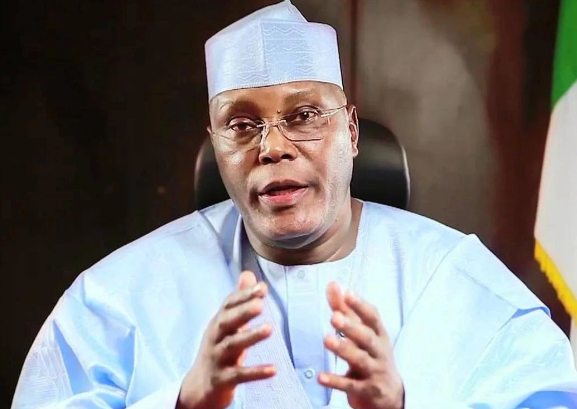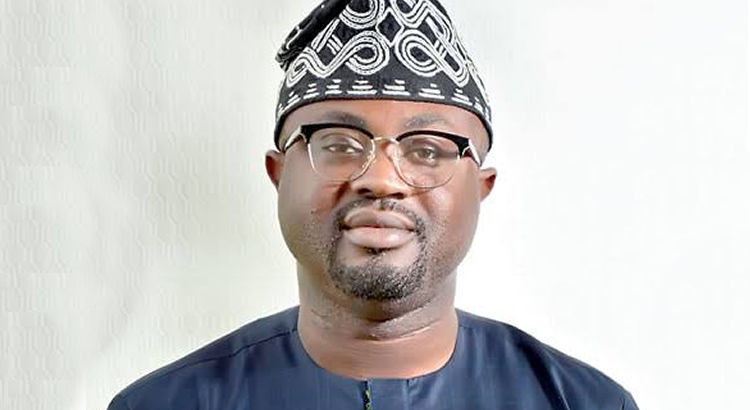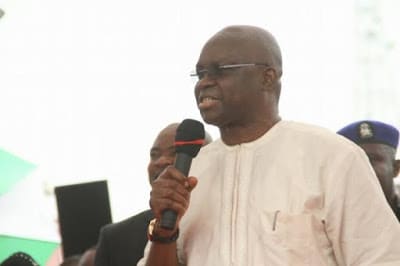Why Nigeria’s democracy is fragile, by Atiku

…Says leaders have failed to meet people’s expectation
….Blame nation’s fragile democracy
Former Vice President and chieftain of the All Progressives Congress, APC, Alhaji Atiku Abubakar has identified the absence of internal democracy within the nation’s registered political parties as the major reason why Nigeria’s democracy remains fragile.
The same, Atiku said, is equally the reason why the quality of leadership that the country produces has not matched the people’s expectations and the challenges facing the nation.
The former Vice President between 1999 and 2007 said this while speaking at the 2nd IPAC Annual Conference 2017 on Internal Party Democracy: A Recipe to a Sustainable Democracy in Nigeria, organized by the Inter-Party Advisory Council of Nigeria in Abuja.
The Turakin Adamawa stressed further that the absence of the same internal democracy within the parties is one of the reasons why it has been very difficult to hold leaders to account.
While noting that power wielders hardly voluntarily enlarge the democratic space, Atiku said that is why he had often opined that internal party democracy will only come with genuine electoral reforms in the country.
According to him,”such reforms, broadly along the Justice Uwais Committee Recommendations, which will further strengthen the independence of INEC and ensure that votes count, will encourage parties to field popular candidates in elections.
“And that in turn will encourage parties to allow internal democracy so members have the freedom to choose and express their opinions. Thus the role of godfathers and executive intrusion in the affairs of parties and elections will be diminished”, he said.
Continuing, Atiku said, “In my view, there is a close relationship between democracy within political parties and democracy within the nation.
“Put simply you cannot give what you don’t have. You cannot build democracy on a substructure of dictatorship and intolerance.
“A political party that constricts the freedom of its members cannot really offer freedom to the citizens of the nation. Democracy is not just an idea; is a cultural practice”, he maintained.
The former Vice President observed that for a number of years now, the nation has had political parties, even governing ones, which hardly hold meetings of their important organs, including those meant for the democratic selection of their leadership, or even constitute institutions prescribed in their Constitution.
According to him, “In the absence of those meetings and elections, their existing leadership, often under the direction of the Executive at the state or federal level, fill the void.
That’s not party building but party bullying. And it’s certainly not a way to democratize parties and aggregate their members’ opinions, interests”‘ he argued.
Atiku however submitted that efforts to deepen Nigeria’s democracy must include efforts at democratizing our political parties.
The institutionalization of democracy in our internal party processes, he argued, will help us deepen democracy in Nigeria as leaders are more likely to tolerate opposition from citizens and other parties if they tolerate it within their own party.
In the words of the former Vice President, “The lack of internal democracy in political parties is one of the reasons for the fraught relationships among parties and their elected representatives and the legislature and the executive.
“The loyalty of some in the legislature and executive lies not with the party but with a godfather who sponsored them, and the godfather may even be in a rival political party.
“Such anomalies will reduce if internal democracy flourishes in our political parties, and by extension the wider society.
“The selection of leaders in a democracy is a serious business because so many other things ride on it. Whenever we get it wrong the nation or a part thereof suffers.
“We must strive to get it right most of the time. And it is the voters who should freely make that determination.
“We had a very long period of authoritarian rule in Nigeria, ending in 1999. The legacy of that period is still with us as can be seen in our various governance institutions.
“Indeed even elements of that authoritarian past still wield power and influence in our country as we try to transition from that legacy.
“Also the structure of our economy is such that the state remains the most important source of economic opportunity.
“This heightens the struggle for state power and helps to shape the relationship between parties and members, among parties and among the various arms of government.
“It is, therefore, a huge challenge to democratize governance and the political parties in our country.But, as the theme of this conference makes clear, internal democracy in our political parties is very important for the parties, their members and for the country”, he said.
Lateef Ibrahim, Abuja








